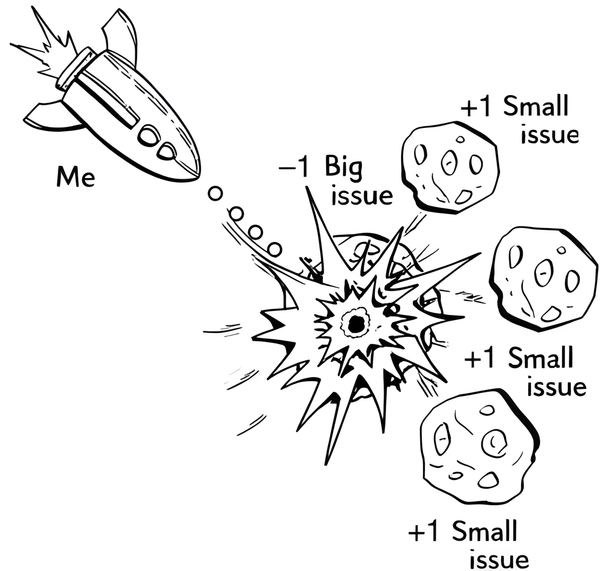How To Start Mentoring?
Mentoring Made Easy: A Beginner's Framework for Success

Why is mentoring important?
Research shows that mentoring has a powerful, positive impact on professional growth. It’s no longer just a “nice to have”; it’s essential for teams and organizations that want to thrive in a post-pandemic world. I believe that everyone has something to share and something to learn. Through mentoring, individuals can reach their full potential by gaining knowledge, confidence, and skills.
Mentoring offers substantial benefits not only for mentees but also for mentors. For mentees, the advantages are clear: they gain valuable insights, develop new skills, and receive guidance to navigate their professional paths. However, the often-overlooked benefit is how mentoring deepens the mentor’s knowledge as well. When mentors share their expertise and experiences, they reinforce their own understanding and gain new perspectives. This process of teaching and guiding others encourages mentors to reflect on their own practices, identify areas for improvement, and stay updated with the latest trends and developments in their field. Ultimately, mentoring creates a mutually beneficial learning environment where both parties grow and evolve together.
(I’ve linked some research below).
In this post, I’m showing you a very simple framework to get started as a mentor. This guide will provide you with the essential steps and practical tips to begin your mentoring journey confidently and effectively.
We’ll start with clarifying what mentorship is, and what it isn’t.
Mentor vs. Coach vs. Sponsor
To maximize your career growth, it’s crucial to understand the distinct roles of mentors, sponsors, and coaches, and how each contributes uniquely to your professional development.
Mentors provide advice and guidance. They take on a directive approach, offering instruction and sharing their knowledge and experience to help you navigate your career path. They are there to answer your questions, provide insights, and help you avoid common pitfalls. Mentors play a critical role in your learning and development, offering wisdom and direction based on their own professional journey.
Coaches adopt a non-directive approach, focusing on reflection and raising your self-awareness. Coaches help you to find your own solutions by asking thought-provoking questions and facilitating a deeper understanding of your goals, strengths, and areas for improvement. They empower you to think critically and develop strategies to achieve your objectives, rather than providing direct advice or instructions.
Sponsors, on the other hand, advocate for you. They use their influence and network to create opportunities for you, often behind the scenes. Sponsors are senior leaders who believe in your potential and actively promote you for promotions, key projects, and other career-advancing opportunities. Their endorsement can open doors that might otherwise remain closed.
For optimal career growth, strive to have at least one mentor, one sponsor, and one coach. This balanced support system ensures you receive comprehensive guidance, advocacy, and personal development. A mentor offers practical advice and knowledge, a sponsor champions your career advancement, and a coach enhances your self-awareness and strategic thinking. Together, this trio provides a robust framework to help you achieve your professional aspirations.
Here’s a handy chart for reference:

Rules of engagement
For the mentoring relationship to be successful, some ground rules need to agreed on by both parties. Establish principles, practices and rules before or at when the mentoring actually starts. This prevents misunderstandings and potential conflicts.
For a mentoring relationship to thrive, both the mentor and mentee need to understand and appreciate each other’s strengths, weaknesses, and relationship goals. A solid foundation for their interactions should be built on core values such as integrity, respect, openness, trust, and active listening. Whenever possible, face-to-face conversations can enhance this connection by providing deeper insights through nonverbal cues.
To ensure a successful mentoring relationship, it’s crucial to start by clearly defining the roles and responsibilities of both parties. Establishing guidelines for collaboration helps set clear expectations and creates a framework for the relationship.
Setting a clear agenda for meetings is vital to keep discussions productive and focused. Both mentor and mentee should come prepared to each session, ready to engage in meaningful dialogue. Openness to each other’s ideas is important for effective collaboration, which involves brainstorming, identifying potential challenges, and determining the necessary actions to address these challenges.
Creating a timeline for implementation helps track progress and maintain momentum. Regularly reviewing this timeline allows for knowledge sharing and the opportunity to decide on the next steps. This structured approach ensures that both parties stay aligned and work towards their mutual goals effectively.
For a mentor, adopting a positive approach is crucial when working with a mentee. Here are some key strategies to follow to ensure a productive and supportive mentoring relationship:
- Appreciate Small Progress: Celebrate and acknowledge even the smallest achievements of your mentee. This positive reinforcement boosts their confidence and motivates them to continue improving.
- Use Candor in Feedback: Be honest and straightforward when sharing critical feedback. Address issues directly, no matter how minor they seem, to help your mentee grow and avoid future pitfalls.
- Focus on Behavior and Choices: When offering criticism, focus on specific behaviors and choices rather than the person themselves. This approach ensures that your feedback is constructive and helps the mentee understand what actions to change without feeling personally attacked.
- Encourage Continuous Improvement: Constantly encourage your mentee to strive for more and do better. Inspire them to push their boundaries, set higher goals, and pursue excellence in their personal and professional development.
The framework
Mentors and mentees often face challenges related to unmet expectations, lack of clear objectives, poor time management, and insufficient feedback. To address these issues, here’s a simple framework for you:
1. Guidelines
Efficiently Manage Time and Resources
Schedule Regular Meetings: Set consistent meeting times and stick to them. This helps both parties stay committed and make the most of their time together. Questions to ask:
Who will prepare the agenda for each session?
How often do you meet?
What should happen with the session if either of you cannot join? Skip or reschedule?
Prepare Agendas: Create detailed agendas for each meeting to ensure discussions remain focused and productive.
Utilize Tools: Make use of collaboration tools like shared calendars, project management software, and communication platforms to keep track of progress and stay organized.
2. Goals
Set Clear Goals and Expectations At the beginning of the mentoring session, the mentor and mentee should collaboratively set and agree on the expectations and objectives to be achieved by the end of the mentoring experience.
Questions to ask:
How exactly will the mentee be better than today, at the end of the relationship?
What level of growth is reasonably achievable?
What milestones do we have on the journey?
Why does the mentee want to get there? (often such questions uncover the real, hidden goals)
Define Roles and Responsibilities: Clearly outline what is expected from both the mentor and the mentee. This includes setting specific goals and milestones.
Establish Short-term and Long-term Goals: Work together to identify what the mentee aims to achieve in both the immediate future and over the long term. You can read more on goal setting techniques in my post. Avoid vague goals like “I want to get better at programming”.
Create Action Plans: Develop detailed action plans to reach these goals, including steps to take, resources needed, and timelines.
3. Feedback and progress
This is about following up, tracking, and evaluating the progress on each objective or expectation set at the beginning of the program, while also assessing the effectiveness of the overall process and sometimes certain sessions.
Sample questions to ask:
On a scale from 1 to 4, how hepful was this session? What was missing?
Does my communication style work for you?
What should we start doing, stop doing or continue doing?
Where are we on the journey we set out on at the beginning?
Do the resources I refer to you help? Do you want more or less of them?
Especially the mentor should keep notes of these conversations and demonstrate curiosity and investment in the mentee’s growth.
Conclusion
n conclusion, mentoring is a powerful tool for personal and professional growth, benefiting both the mentor and the mentee. By adopting a structured approach, mentors can effectively address common challenges and foster a supportive, productive relationship. Setting clear guidelines, objectives, implementing action plans, and regularly reviewing progress ensures that both parties stay aligned and focused on achieving their goals. The importance of clear communication, consistent feedback, and mutual respect cannot be overstated, as these elements form the foundation of a successful mentoring partnership.
Furthermore, the role of mentors, sponsors, and coaches is crucial in nurturing talent and driving career advancement. Each brings unique value to the table: mentors provide guidance and share knowledge, sponsors advocate and create opportunities, and coaches enhance self-awareness and strategic thinking. By leveraging the strengths of each role and utilizing powerful, thought-provoking questions, mentors can inspire mentees to explore new possibilities, overcome challenges, and achieve their full potential. Ultimately, a well-executed mentoring program not only enhances individual growth but also contributes to the overall success and innovation within an organization.
Research results about the importance of mentorship
If you’re still not convinced that mentorship is an area worth investing in, here’s a couple of studies:
- The Mentoring Effect study indicates that young adults at risk of falling off track are 55% more likely to enroll in college if they have a mentor. This finding demonstrates the powerful role mentoring plays in guiding at-risk youth towards educational and professional opportunities, setting them on a path to success.
- Heidrick & Struggles conducted a survey showing that 78% of CEOs view mentoring as a critical factor in their career development. This high percentage underscores the importance of mentoring in reaching top executive positions and navigating the complexities of leadership roles.
- Research by Sun Microsystems found that both mentors and mentees were approximately 20% more likely to receive a raise than those not involved in a mentoring program. This statistic highlights the mutual benefits of mentoring, fostering a culture of continuous learning and improvement that directly translates to financial rewards.
- A study by Deloitte reveals a significant gap in leadership development, with 63% of millennials feeling their leadership skills are not fully developed. Interestingly, those who plan to stay with their organization for over five years are twice as likely to have a mentor (68%) compared to those without a mentor (32%). This correlation suggests that mentoring not only enhances leadership skills but also boosts retention rates.
I hope you liked it, and you’ve learned something — if you did, don’t forget to give a thumbs-up and share this issue with your friends and network.



